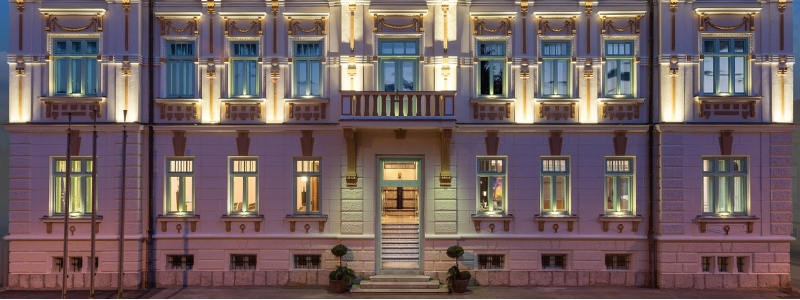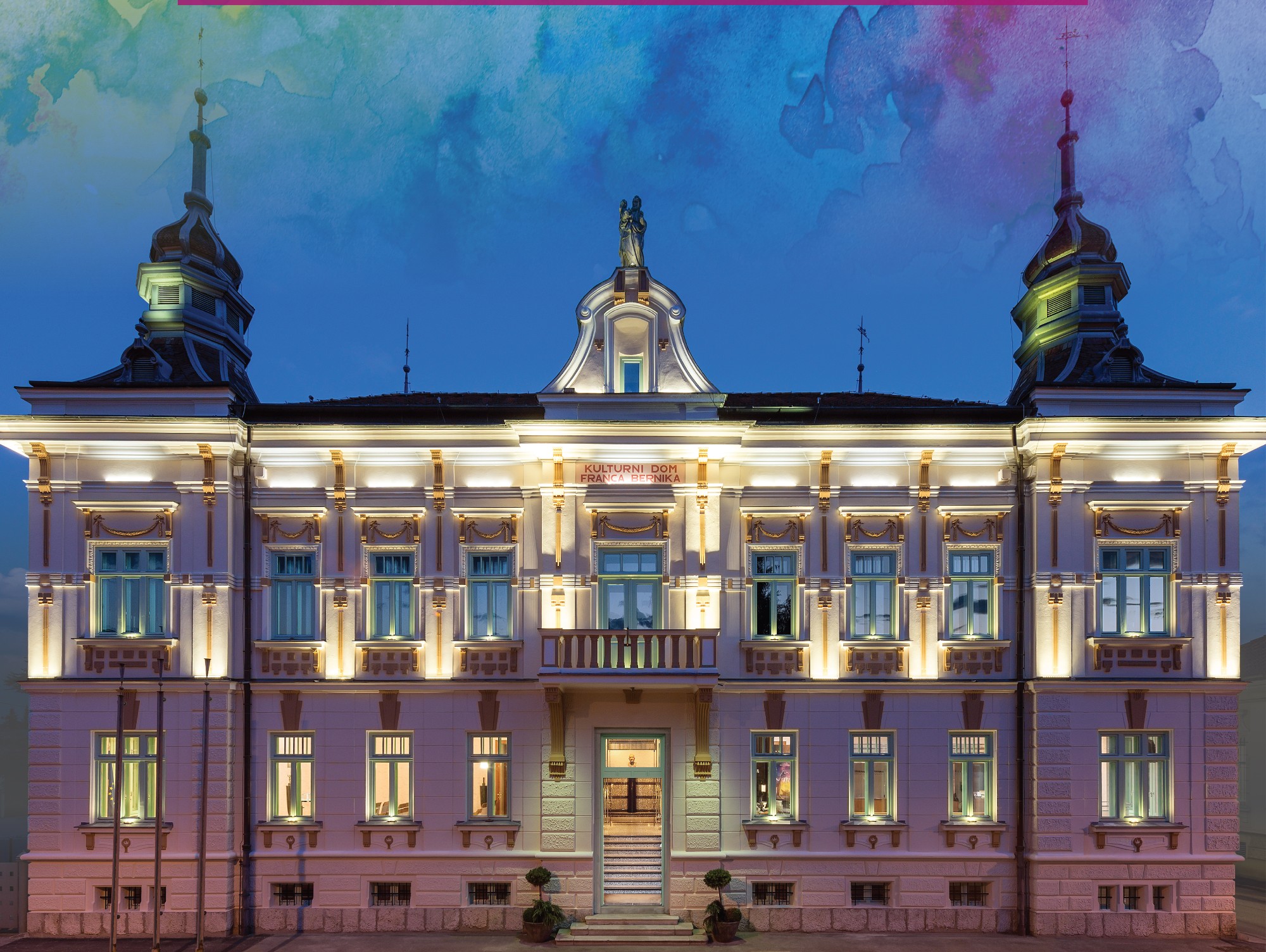The history of the building – which has housed a public institute, the Franc Bernik Cultural Centre Domžale, and the Domžale Music School since its restoration in 1998 – dates back more than 100 years. Today, the Cultural Centre bears the name of a Domžale-based priest, writer, composer and local chronicler, Franc Bernik (1870–1948).
Originally a community and Domžale Society centre – Društveni dom Domžale, the building was constructed in 1910, based on the designs of master carpenter Franc Ravnikar. The construction was initiated and organised by the Domžale parish priest, Franc Bernik, and funded by the Catholic Educational and Support Society Domžale.
Domžale was experiencing a heyday at the beginning of the 20th century, primarily on account of its straw-hat manufacturing business. Thus, highlighting the need for a cultural facility, a desire was expressed for a public space for cultural life and other aspects of local community life. Notwithstanding their modest standard of living, the residents of Domžale were of one mind concerning the idea to build a cultural centre. The first preparatory steps were taken in 1908, when carpenter Franc Ravnikar drafted plans for a new Društveni dom. The masonry work was entrusted to artisan Matej Hočevar from Trzin. The centre’s opening ceremony and a procession of high-level delegations, taking place on 28 August 1910, was attended by hosts of people from Domžale and its environs.
Before and after World War I, Društveni dom provided the venue for a variety of social activities, hosting events by other associations and organisations apart from those organised by the local cultural society. Large-scale social gatherings included a convention organised in 1911 by the Slovenian Student Union. In 1924, opera singer Anton Šubelj, a native of Domžale, and a renowned tenor, Jože Gostič, performed in the centre. The venue’s programme featured performances by the Domžale choral society, shows by the local primary school, the Red Cross youth section, the nursery school, presentations by the Orel and Orlica Gymnastic Societies, and various official ceremonies, etc.
During World War I, military regiments stopped and mustered in the Centre on their way to the front, and provisional refugee centres and hospitals were set up there. After the war, theatre performances and concerts were held in the Centre’s hall, in addition to which the venue also hosted a film exhibition company, Kino podjetje, which screened films in the auditorium. Over this period, stage director Franc Lazar strove to rekindle the art of theatre in Domžale, staging several plays in Društveni dom, including Cankar’s Kralj na Betajnovi (The King of Betajnova), Župančič’s Veronika Deseniška (Veronika of Desenice), Shakespeare’s comedy As You Like It, as well as Finžgar’s Divji lovec (The Poacher), whose songs and music interludes were written by composer and priest Matija Tomc. Established on the premises of Društveni dom in 1950, the Domžale Music School became the owner of the building 25 years later.
In the mid-1980s, the idea to renovate the building evolved. The Music School was compelled to move out of the dilapidated building. Biro Karlovšek, a building design and construction bureau, formulated a basic renovation plan in 1991, and the restoration works began four years later with a new project of interior design and lighting based on plans by architect Mojca Ačkun-Andrič. The SGP Graditelj Kamnik building contractor carried out extensive renovations between 1996 and 1998. In professional circles, the edifice is considered a fine example of Slovenian fin-de-siècle architecture.
A ceremony marking the opening of the renovated building took place on 6 February 1998. The overhauled grand hall was named after the church composer and Domžale parish priest, Matija Tomc. Busts of Prof. Tomc and Franc Bernik made by academy-trained sculptor Boni Čeh adorn the foyer. The Cultural Centre and Music School premises are decorated with sculptures by Franc Ahčin, a Domžale resident.
The Franc Bernik Cultural Centre’s programme covers a variegated range of art forms, including theatre, music-theatre, dance performances and concerts, while also hosting sound recording studios and art exhibitions, radio and television broadcasts, as well as providing the venue for fairs and congresses.
Seeking to devise a richly varied programme, the Cultural Centre’s artistic directors select from a broad array of genres, drawing from diverse performing art aesthetics. Each season, special attention is paid to outlining a conceptually and aesthetically consistent programme, while making sure to showcase Slovenia’s own creative art. The Centre is dedicated to regularly featuring representative Slovenian artists.
The Cultural Centre offers different music and performing arts, theatre, film, music and children’s season series. Devised by artistic director Mate Bekavac, an acclaimed clarinet player, the classical music programme boasts an especially high level of sophistication, presenting in Domžale major art music works, pieces covering a wide range of musical styles, from classicism, romanticism, modernism and avant-garde music to contemporary Slovenian art music. Featured international composers include illustrious names, most notably Schubert, Brahms, Britten, Schoenberg, Stravinsky, Gubaidulina and Berio, as well as Slovenian composers Andrej Makor and Andrej Misson. The music and performing arts season series also showcases well-known national popular music and cultural figures, including Zoran Predin, Svetlana Makarovič and Jani Kovačič.

